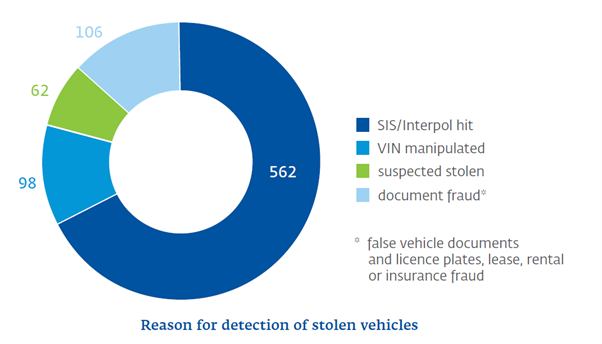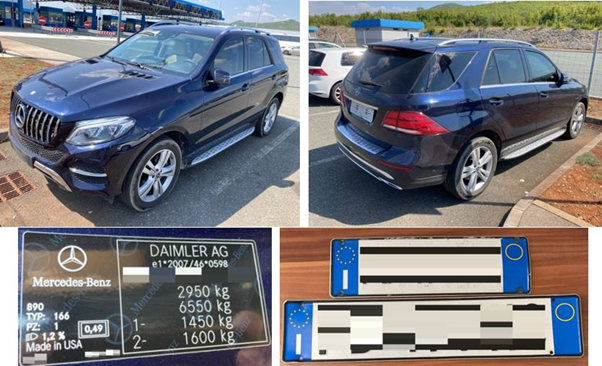Detecting stolen cars is a race against time. Criminal gangs involved in car theft across Europe constantly change their methods to avoid detection. They often strip vehicles into parts to make it easier to move them across borders, and more difficult for law enforcement officers to track them. Criminals often try get stolen cars out of the EU before they can even appear in an international database.
Last year, national authorities reported to Frontex the seizure of 670 stolen cars. 416 of them were detected in Frontex joint operations – twice as many as the previous year. Additionally, 33 cases of stolen car parts and 122 cases of vehicle-related document fraud were registered.
Motor vehicle crime continues to have the greatest impact on EU’s eastern land borders. Criminals have tried to take advantage of the massive number of people who have been streaming across EU borders following the outbreak of war in Ukraine. They have used this “opportunity” to drive stolen cars out of the EU, often using the genuine registration details of another vehicle of the same make and model.
Fighting car theft
How do law enforcement officers detect stolen cars?
Frontex deploys 92 motor vehicle crime detection officers and 177 document experts to its operations. The officers are trained to identify crimes or irregularities related to vehicles crossing the EU’s borders. Their everyday work requires technical knowledge of cars, boats, lorries, their engines, vehicle identification (VIN) numbers and market value, as well as security features of various documents.
In 2022, two out of every three stolen vehicles seized were detected thanks to appearing in the Schengen Information System or Interpol database. Car theft and document fraud go hand-in-hand: in most of the stolen vehicle cases, fraudulent documents were also detected, including VIN manipulation, forged or counterfeit vehicle registration documents and licence plates.
This is the reason why the expertise of border guards in vehicle-related document fraud is essential for tackling motor vehicle crime.

